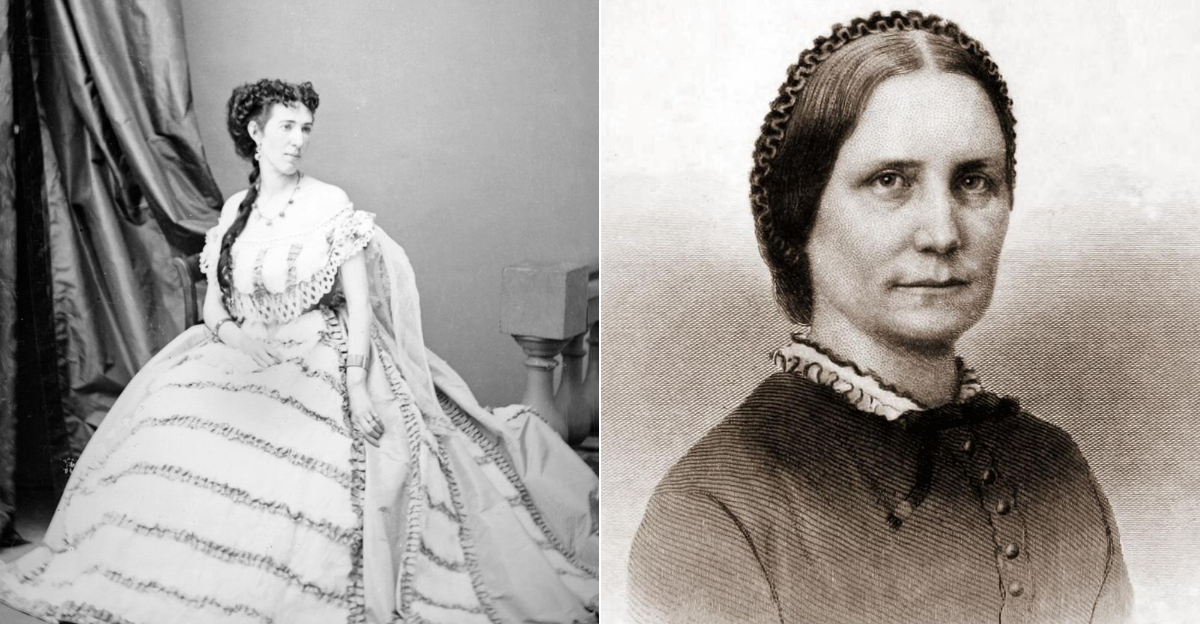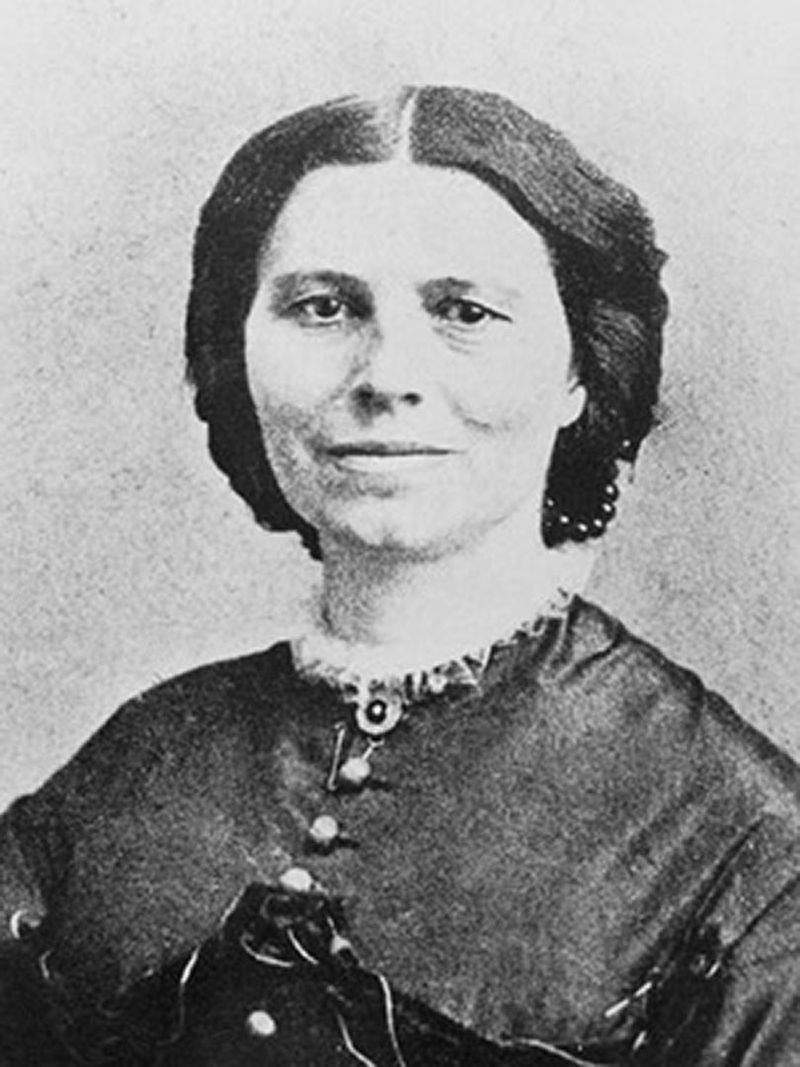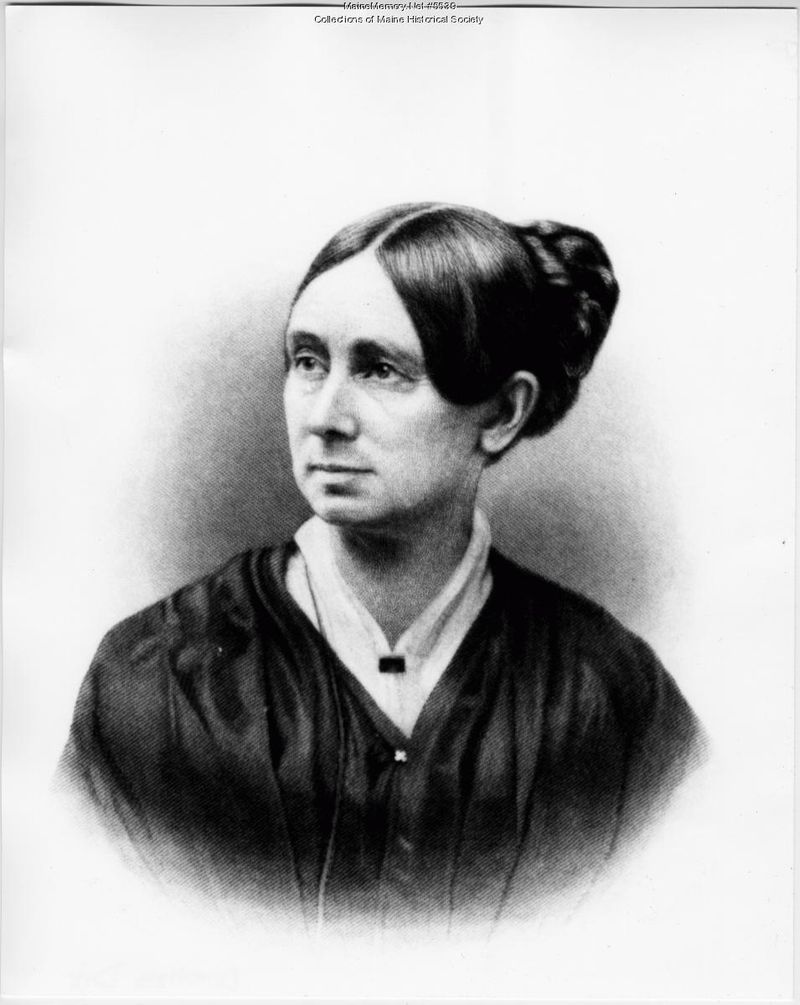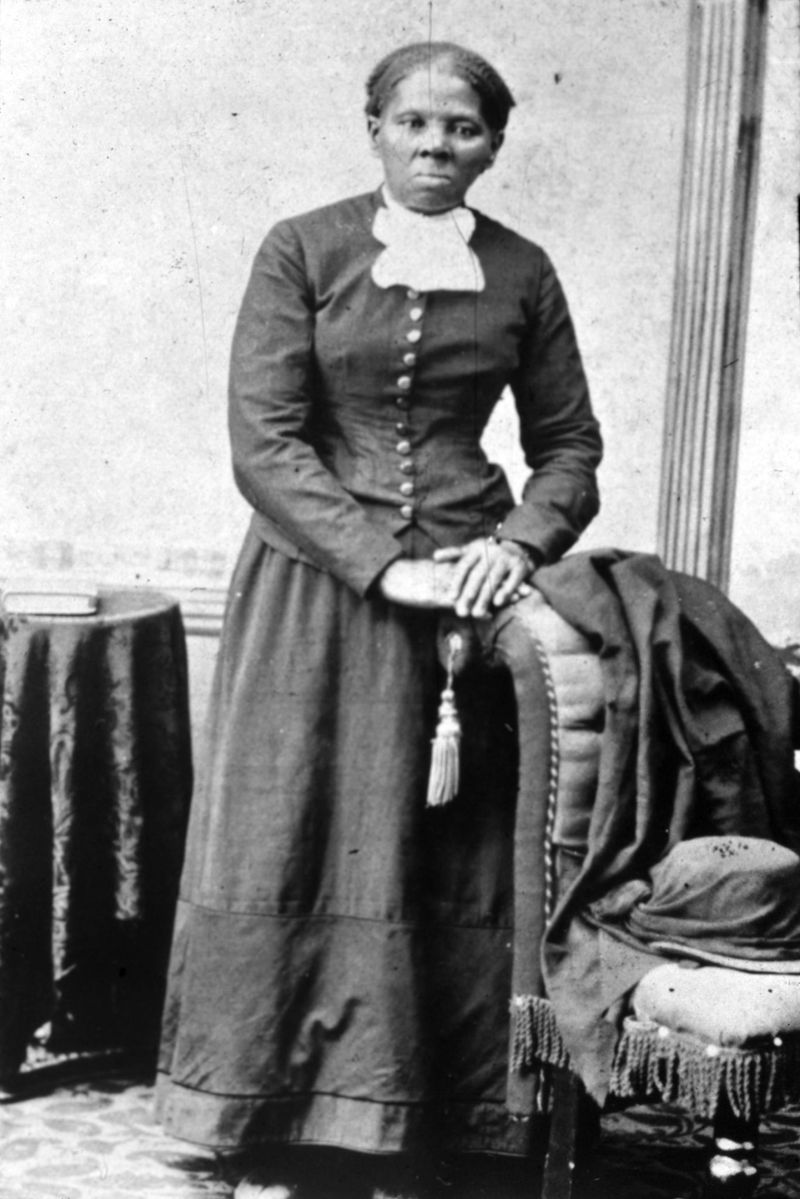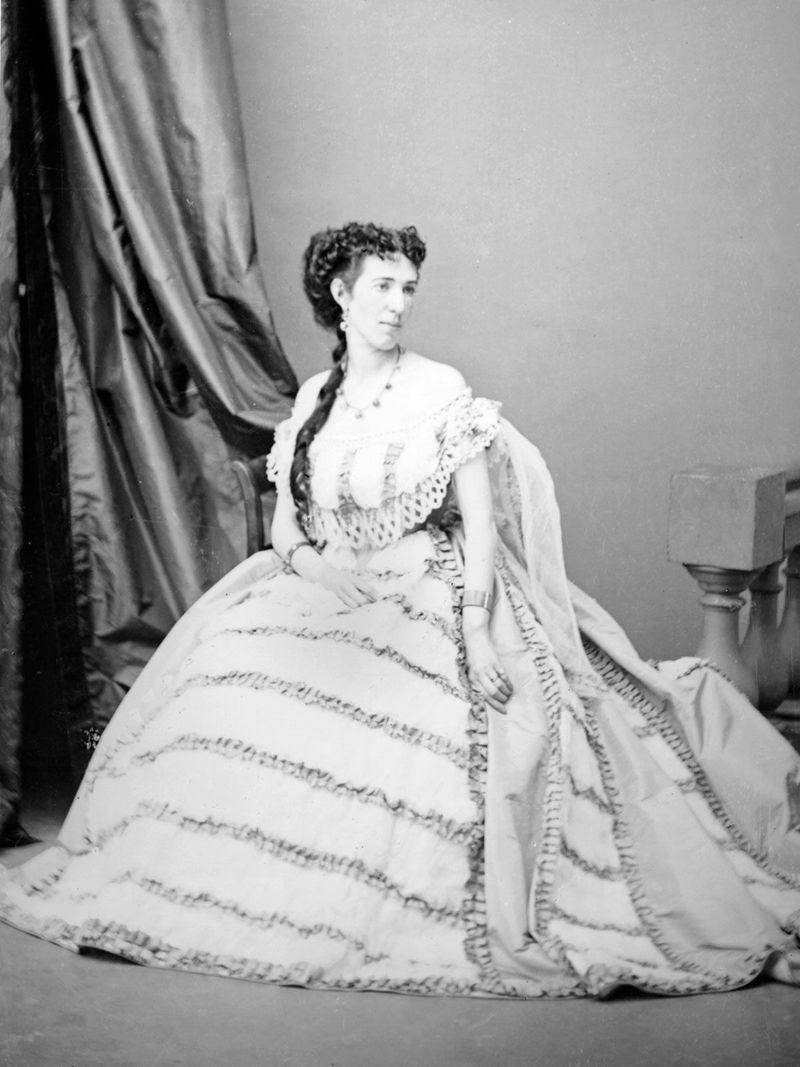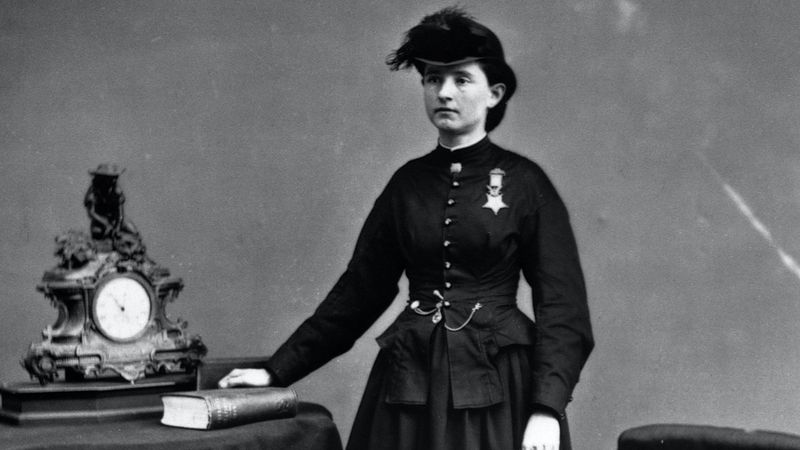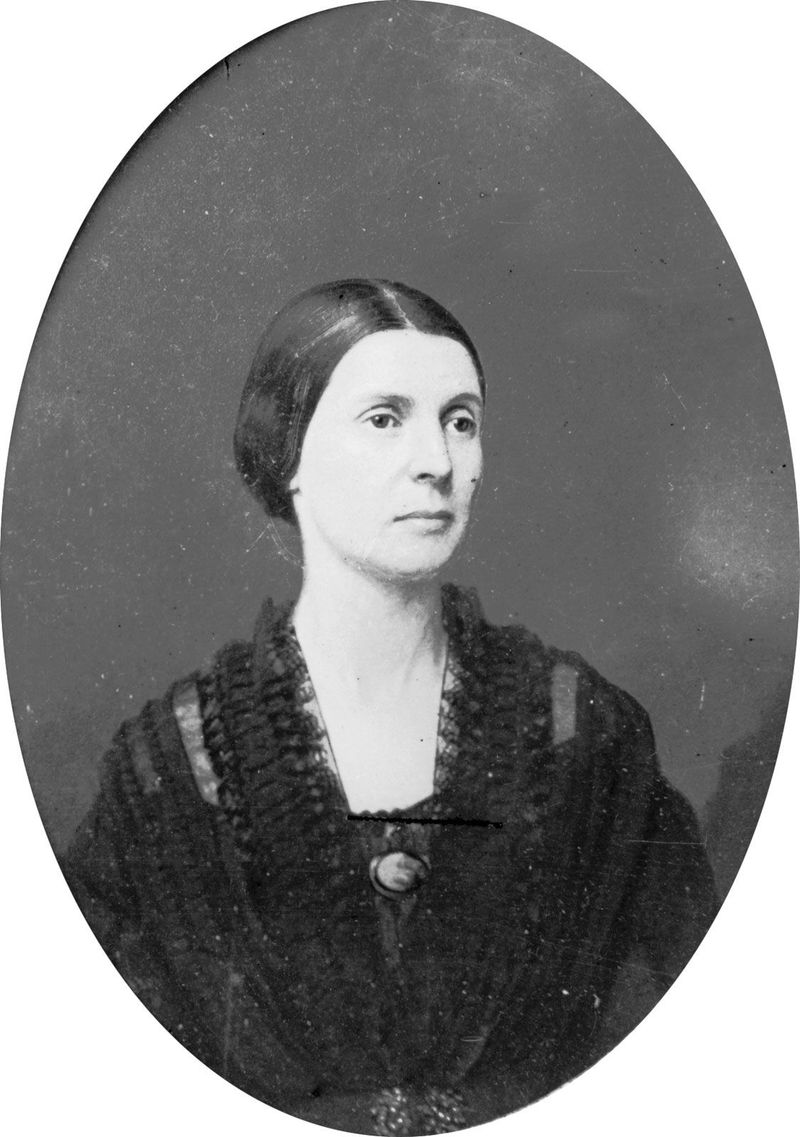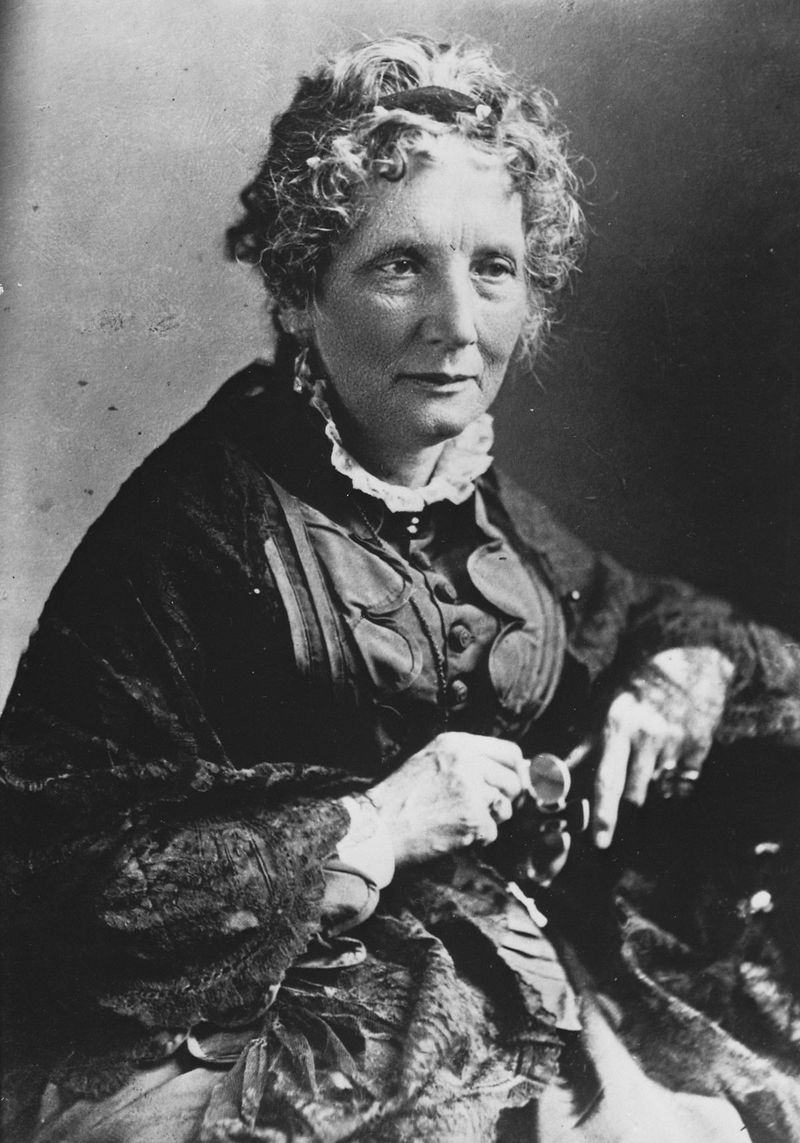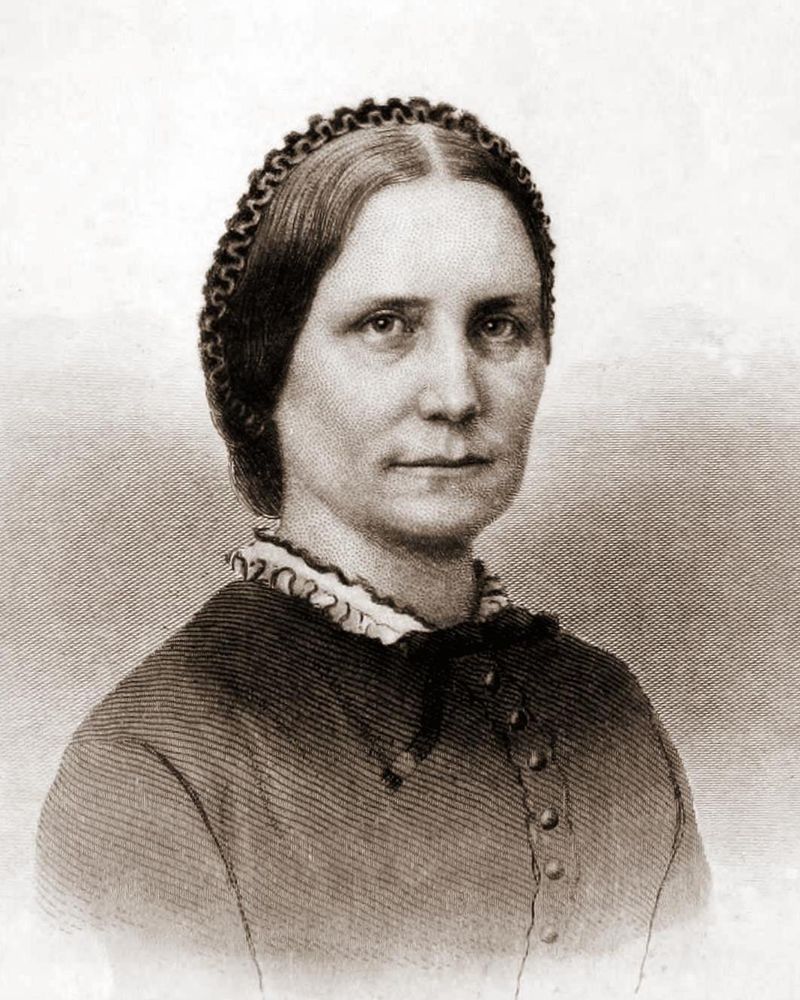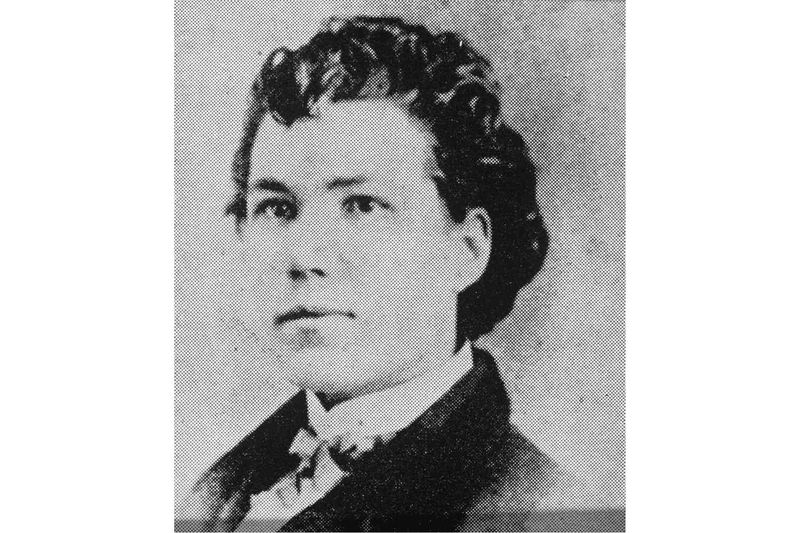When we think of the American Civil War, images of soldiers and battlefields often come to mind. But women played crucial roles that shaped the outcome of this nation-dividing conflict. From battlefield nurses to cunning spies, these remarkable women broke traditional gender barriers during America’s bloodiest war. Their courage, intelligence, and determination not only helped their respective causes but also paved the way for future generations of women.
1. Clara Barton – “The Angel of the Battlefield”
Known as the “Angel of the Battlefield,” Clara Barton revolutionized battlefield medicine during some of the war’s bloodiest conflicts. She often worked under enemy fire, delivering critical medical supplies when government resources fell short.
Her experiences treating wounded soldiers inspired her greatest achievement – founding the American Red Cross in 1881. Before the war, Barton worked as one of the first female clerks in the U.S. Patent Office.
Remarkably self-taught in nursing, her determination to help soldiers came from witnessing the suffering of Massachusetts volunteers early in the conflict. Her legacy of humanitarian service continues to save lives worldwide today.
2. Dorothea Dix – Superintendent of Army Nurses
Fierce and formidable, Dorothea Dix transformed military nursing by establishing rigorous standards for Union Army nurses. At 59, she abandoned her mental health reform work to serve her country, accepting no salary throughout the war.
Dix insisted on hiring only “plain-looking women” over 30, believing beauty would distract recovering soldiers. Her strict requirements included sobriety, cleanliness, and impeccable moral character.
Though often described as difficult and inflexible, her organizational genius created America’s first professional nursing corps. Before the war, she had already revolutionized mental healthcare, persuading numerous states to build specialized hospitals for the mentally ill.
3. Harriet Tubman – Union Spy & Liberator
Most famous for her Underground Railroad heroism, Harriet Tubman’s Civil War contributions remain equally extraordinary but less celebrated. In 1863, she became the first woman to lead an armed expedition during the war, guiding Union raiders along South Carolina’s Combahee River.
The daring mission freed over 700 enslaved people and destroyed valuable Confederate supplies. Born into slavery herself, Tubman used her intimate knowledge of terrain and secret communication networks to gather critical intelligence for Union forces.
Despite suffering from narcolepsy caused by a childhood head injury, she navigated dangerous territory fearlessly. Her military pension was initially just $20 monthly – half what white male scouts received.
4. Belle Boyd – “The Confederate Cleopatra”
At just 17, Belle Boyd began her espionage career by shooting a Union soldier who insulted her mother. Her youth and charm made her an unlikely but devastatingly effective Confederate spy.
Union officers freely discussed military plans in her presence, never suspecting the seemingly flirtatious teenager was memorizing every detail. Boyd once rode 15 miles through dangerous territory to deliver intelligence that helped Stonewall Jackson win the Battle of Front Royal.
Arrested six times and imprisoned twice, she escaped to England where she married a Union naval officer who had been assigned to capture her. After the war, she capitalized on her notoriety by becoming an actress and touring the country telling her war stories.
5. Mary Edwards Walker – Only Female Medal of Honor Recipient
Defying 19th-century conventions, Dr. Mary Edwards Walker insisted on wearing men’s clothing long before it was socially acceptable. As one of the nation’s first female physicians, she volunteered for the Union Army but was initially only allowed to serve as a nurse.
Her medical skills eventually earned her a position as the first female U.S. Army surgeon. Captured while treating civilians behind enemy lines, she endured four months in a Confederate prison.
In 1865, President Andrew Johnson awarded her the Medal of Honor – the only woman ever to receive this distinction. Though controversially revoked in 1917 during a medal eligibility review, President Jimmy Carter restored her medal posthumously in 1977.
6. Rose O’Neal Greenhow – Washington’s Most Dangerous Spy
A Washington society hostess with powerful connections, Rose O’Neal Greenhow leveraged her social position to become the Confederacy’s most valuable spy. Her intelligence network included congressmen, military officers, and even a senator who fell in love with her.
Information she provided directly contributed to the Confederate victory at the First Battle of Bull Run. When caught by Allan Pinkerton (who later founded the Secret Service), authorities found coded messages hidden in her hair and the seams of her dresses.
Her espionage career ended tragically in 1864 when she drowned after her rowboat capsized while returning from a European diplomatic mission. She was carrying gold sovereigns for the Confederate treasury sewn into her clothing, which dragged her underwater.
7. Harriet Beecher Stowe – Author of Uncle Tom’s Cabin
“So you’re the little woman who wrote the book that started this great war.” These famous words, allegedly spoken by Abraham Lincoln upon meeting Harriet Beecher Stowe, acknowledge the seismic impact of her novel “Uncle Tom’s Cabin.”
Published in 1852, the book sold an unprecedented 300,000 copies in its first year. Through emotional storytelling, Stowe humanized enslaved people for Northern readers who had never witnessed slavery firsthand.
Few books in American history have so dramatically shaped public opinion or policy. The daughter, sister, and wife of prominent ministers, Stowe channeled her deep religious convictions into moral arguments against slavery. Her writing transformed abstract political debates into human suffering that readers couldn’t ignore.
8. Mary Livermore & the U.S. Sanitary Commission
Mary Livermore orchestrated what might be the first large-scale female-led humanitarian organization in American history. As director of the Chicago branch of the U.S. Sanitary Commission, she transformed women’s traditional domestic skills into a massive military support network.
Her genius for organization helped raise millions in supplies and funds through innovative “Sanitary Fairs” – elaborate community fundraisers featuring food, entertainment, and auctions. These events not only supported troops but demonstrated women’s organizational capabilities.
After visiting military hospitals and witnessing horrific conditions, Livermore became a fierce advocate for improved medical standards. Her wartime experiences convinced her that women deserved greater rights, leading to her post-war career as a suffragist and women’s rights activist.
9. Sarah Edmonds – Union Soldier & Spy
Before joining the Union Army as “Franklin Thompson,” Sarah Edmonds had already lived as a man for years, escaping an arranged marriage in Canada. Her disguise proved so convincing that she served for two years in the 2nd Michigan Infantry without detection.
Volunteering for dangerous spy missions, Edmonds infiltrated Confederate camps using various disguises – including darkening her skin to pose as a Black man and dressing as a female slave. She documented treating wounded soldiers on both sides during battles.
When malaria forced her to desert rather than risk discovery in a hospital, she later served as a female nurse. In 1884, she became the only woman officially recognized as a veteran of the Civil War, receiving a military pension for her service.
